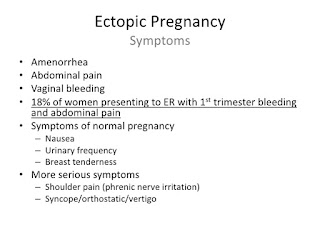28 year old woman with an ectopic pregnancy dies of a
heart attack after waiting two hours for an ambulance to arrive
Sabrina
Stevenson, who did not know she was pregnant, had been complaining of abdominal
pain, diarrhoea and vomiting and desperately called 999 from her home in north
London.
An inquest held
earlier this year heard that she had told her flatmate she wasn't feeling well
and after getting worse throughout the day, called for an ambulance at 6.30pm.
But a coroner
told the court a series of 'inappropriate decisions, missed opportunities and
system failures' meant that paramedics didn't arrive until 10.30pm and she died
an hour later.
The call came
on the day after 'Black Friday', the last weekend before Christmas, and when
ambulance crews are traditionally busier.
Her distraught
mother, Dawn Coventry, 50, has now slammed the London Ambulance Service for the
delay, which the coroner said contributed to her death.
Mrs Coventry,
a practice manager for a legal firm in Rayleigh, Essex, said: 'For me as a
mother, it is horrific to know how she was treated in her final hours.
'The inquest
proved that if they had acted properly then we would still have Sabrina with us
today.'
Her stepfather
Gary Coventry, 47, a practitioner of Chinese medicine, explained that she had
been out on the Saturday night and had a couple of drinks but felt unwell the
next day.
'No one knew
she was pregnant - she hadn't told anyone so we think she may not have
even known herself,' he said.
Symptoms of
ectopic pregnancies, in which a fertilised egg develops outside of the womb, can
occasionally go unnoticed but tend to include vaginal bleeding and mild to
severe abdominal pain.
The inquest
heard how Miss Stevenson's flatmate had called for an ambulance on December 16,
2012, after she had suffered abdominal pain, diarrhoea and vomiting throughout
the day.
The 999 was wrongly assessed resulting in no ambulance being sent
until a call back prompted the incident to be upgraded for ambulance
response within 30 minutes.
That half an hour target was missed and one hour after the
original 999 call an ambulance was dispatched.
The requested ambulance crew then rejected the call as the
ambulance was part of a trial in which staff would refuse patients presenting
symptoms of diarrhoea and vomiting.
When crews arrived two hours after the original call, they
struggled to assess Miss Stevenson's condition and delayed taking her to
hospital due to problems with removing her from the flat.
Miss Stevenson suffered a catastrophic collapse whilst in the
carry chair and then a cardiac arrest as she was rushed to hospital.
She arrived at the accident and emergency department at 10.40pm
but was declared dead at 11.24pm.
The coroner recorded a narrative verdict, blaming a number of
failures - accumulating in neglect - for her death.
Dr Richard Brittain, assistant coroner for Inner London North,
said: 'A series of inappropriate decisions, missed opportunities, clinical
failures and system failures, resulted in delayed transportation to hospital
several hours later, at a point when she was in a state of cardiac arrest.
'I heard evidence that, had Sabrina arrived in the emergency
department prior to cardiac arrest, it is likely she would have received
operative treatment. This would, on balance of probabilities, have saved
her life.
'There were multiple factors which added to the complexity and
difficulty of transporting Sabrina to hospital.
'With that in mind, it is my judgment none of the individual
failings in isolation meet the test required to find neglect.
'However, cumulatively, I judge that these failures do amount to
neglect which, together with the consequences of a ruptured ectopic pregnancy,
caused Sabrina's death.'
THE DEADLY COMPLICATION: WHAT IS AN ECTOPIC
PREGNANCY?
In normal pregnancies, a fertilised egg implants itself in the
lining of the womb where it grows and develops.
But in an ectopic pregnancy, the egg implants itself in the
fallopian tube – which leads from the ovary to the womb. In rarer cases it
implants itself in the abdominal cavity or an ovary.
Around one in 60 to one in 80 pregnancies are ectopic – and in the
vast majority the baby cannot be saved. Often a woman will only realise the
pregnancy is ectopic at the first scan between six and ten weeks.
Usually it is terminated immediately because of the risks to the
mother.If left, the growing foetus may rupture the fallopian tube or other
organs which can cause severe internal bleeding. Around five women a year die
from an ectopic pregnancy in the UK.
Evidence from a consultant gynaecologist, stated that, had Miss
Stevenson arrived in A&E at a point prior to cardiac arrest, then, on the
balance of probabilities, the ectopic pregnancy would have been diagnosed and
she would rapidly have had lifesaving surgery.
The inquest was also told that 'too much reliance' was placed on
reports from Miss Stevenson that she had the contraceptive implant, and
therefore did not think she was pregnant.
This was contrary to the evidence of her GP, who stated that it
had previously been removed.
Mrs Coventry has now paid tribute to her daughter saying: 'Sabrina
was the sort of person who saw good in everybody.
'If she only had a fiver to last her the week and you asked her
for it, she would give it to you with no questions asked.
'She was very bubbly and was always happy. She was a ray of light
for everyone.
'One of the things that I would like to see going forward is that
the medical profession consider that any woman of childbearing age presenting
with abdominal pains is pregnant until this is ruled out.'
The couple have now organised a fundraising golf tournament to
raise money and awareness for The Ectopic Pregnancy Trust at The Rayleigh
Club in Rayleigh, Essex, this Saturday .
Mr Coventry added: 'The condition happens a lot. It's quite common
and about five women a year die from ectopic pregnancies.
'We're trying to raise funds for the charity, but also awareness
of the condition so husbands and partners will recognise the signs.
'We also feel GPs are not fast enough to spot the signs and are in
some way dismissive of the women who report with certain issues.'




Comments
Post a Comment